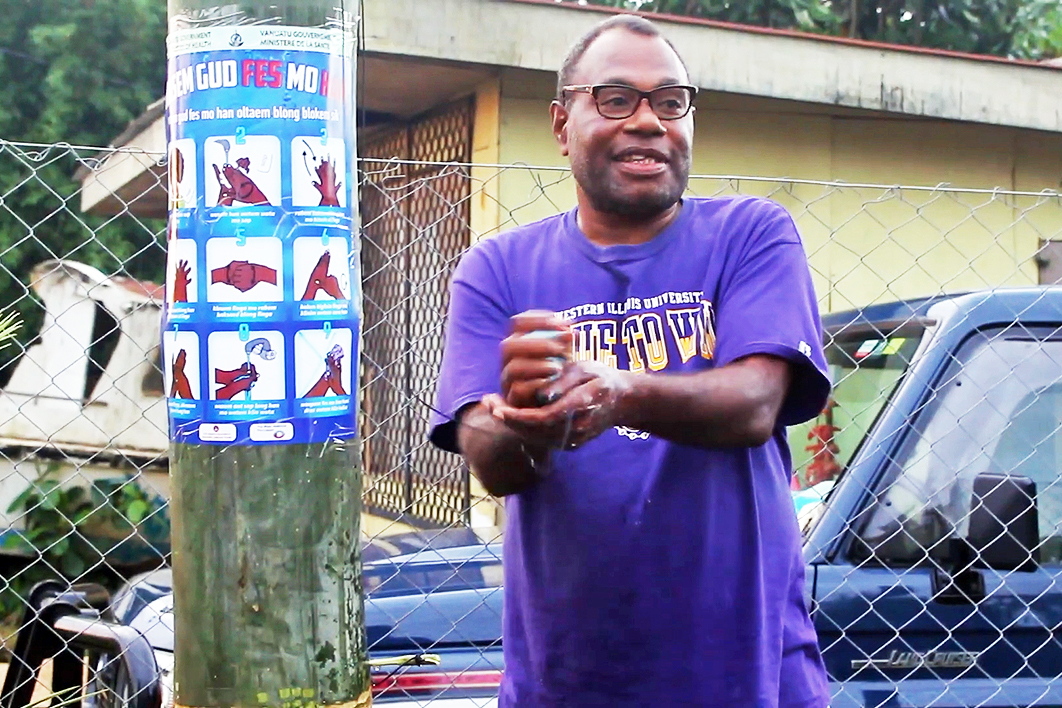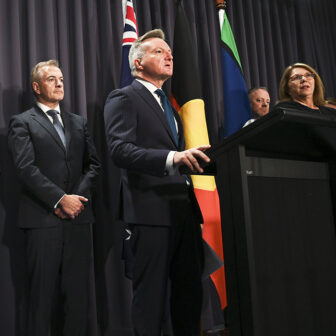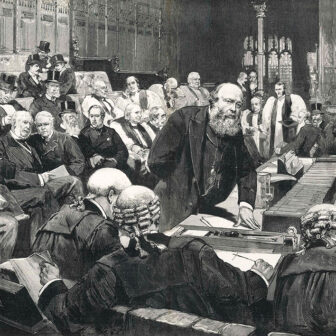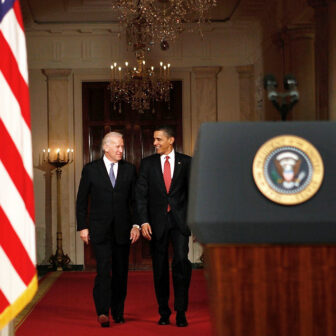I was supposed to be in Tahiti by now, in good time for French president Emmanuel Macron’s planned visit to French Polynesia in mid April. As a correspondent for Islands Business magazine, I’d also scheduled a couple of weeks to interview people in the outer islands about the lingering effects of France’s 193 nuclear tests, the effects of climate change on reef ecologies, and other challenges in French Polynesia.
Then the world turned upside down.
As the Covid-19 coronavirus spread from Italy into France, Macron proposed a change of dates for the Tahiti summit and then postponed his trip. I wavered, thinking I could still interview ordinary people rather than presidents and prime ministers. But with airlines cancelling flights and governments closing borders, the decision was soon out of my hands.
French Polynesia’s representative to the French National Assembly in Paris, Maina Sage, returned to Tahiti on 7 March. Four days later, French Polynesian president Edouard Fritch announced that Sage was his country’s first confirmed case of Covid-19. She had sat on a parliamentary commission in Paris with French culture minister Franck Reister, who was one of five members of the National Assembly soon confirmed with the virus. Tested on her return to the Pacific, she was diagnosed with Covid-19 and isolated at home. At the time of writing, French Polynesia is in lockdown, with twenty-five infections a fortnight after the first confirmed case.
The relative isolation of small island nations should provide natural protection from global pandemics, as long as quarantine systems and border controls are in place to monitor arrivals. It’s no small irony that the first confirmed cases of Covid-19 occurred in French Polynesia, Guam, Hawaii and New Caledonia, all of them American and French colonial dependencies (apart from Papua New Guinea, these territories also had the highest rates of HIV infection during the AIDS pandemic). The first coronavirus-related death in the Pacific was announced in the US territory of Guam on 22 March.
Infections have now been confirmed in Fiji and Papua New Guinea, and other island nations are likely to report cases soon.
Naturally people in the Pacific see parallels with the impact of the global influenza epidemic after the first world war. The New Zealand ship SS Talune travelled from Auckland to Apia, the capital of Western Samoa, in November 1918. On board were passengers suffering from a highly infectious pneumonic influenza, known as Spanish flu. Although the ship had been quarantined in Fiji, sick passengers were allowed to disembark in Samoa. An estimated 90 per cent of locals were infected and 22 per cent of the population died.
Today, health departments across the region are urgently sharing basic information about handwashing, social distancing and dealing with coughs and sneezes. But personal hygiene is constrained in countries where easy access to running water and sanitation is limited, especially in outlying rural areas and peri-urban squatter settlements. According to the Pacific Community, “approximately 45 per cent of all Pacific islanders continue to live without access to basic drinking water facilities and some 70 per cent live without access to basic sanitation — the highest of any region of the world.”
While many communities are still unaware of the enormity of the pandemic, years of work to prepare for natural disasters and climate change provide an invaluable base to build on. As I’ve reported in Inside Story, extensive efforts have been put into establishing community disaster committees, mapping local vulnerabilities, engaging women and young people, and developing culturally appropriate community education. The value of this work can be seen today: in the Fresh Water settlement on the outskirts of Port Vila, for instance, community leaders have rigged up bamboo poles to store water for handwashing where individual households lack soap and running water.
When reports emerged of mass infection on the Diamond Princess cruise ship in Japan and the Grand Princess in the United States, Pacific governments moved quickly to ban such visits. Then, in late March, Tuvalu, Nauru, Tonga, Vanuatu and Samoa all declared states of emergency, with other countries to follow.
On 8 March, the Republic of Marshall Islands took the unprecedented step of banning all flights into the country. What seemed an extreme step is now a commonplace measure, as countries close their borders and airlines cancel flights. But the collapse of the global aviation industry poses particular challenges to island nations: national and international carriers are a vital economic lifeline, carrying tourists, imports and exports, development workers and migrant labourers. The decision by Australia and New Zealand to close their borders created problems for the many islanders who must transit through Sydney, Auckland or Brisbane to reach home, but both governments are now waiving the fourteen-day quarantine period for some Pacific citizens to transit.
Pacific seasonal workers face a particular challenge. Many have travelled to work in the largest members states of the Pacific Islands Forum — in New Zealand, under the Recognised Seasonal Employer program, and in Australia, under its Seasonal Worker Programme and Pacific Labour Scheme. Employers in Australia are pushing for their visas to be extended, but social justice and workers’ rights are not high on the agenda.
As Henry Sherrell and Peter Mares have highlighted, this international labour mobility comes at a time of structural shift in the Australian economy towards temporary migration. More than 1.8 million overseas migrants now live in Australia on temporary visas, including New Zealand citizens who are visa holders with work rights under the Closer Economic Relations agreement. Countries like Samoa and Tonga receive more than a quarter of their GDP from remittances sent by their citizens working overseas. With massive job losses in Australia, will temporary labour migrants be welcome again?
As in Australia, interruptions to air and maritime transport, loss of tourism and increased health spending will damage island economies in coming months. Rural communities have the advantage of being able to continue farming and fishing, but other key industries will shed waged jobs. In Palau, Vanuatu and Fiji, for example, more than 40 per cent of GDP comes from the tourism sector. The loss of revenues and remittances will create added pressures on governments already forced to budget for increased health spending. Many countries and territories lack health infrastructure, equipment, qualified personnel and the crucial laboratory equipment to analyse tests on site. Papua New Guinea and some other countries have had to send Covid-19 samples to Australia for analysis, adding delays to diagnosis and treatment.
Even as Australia and New Zealand hunker down, support is needed for health systems in the region. Both countries are jointly funding the Pacific regional coronavirus response plan of the World Health Organization, which includes the WHO Joint Incident Management Team in Fiji. The regional technical agency, the Pacific Community, is the lead agency for public health in the islands region and is working with donors to provide funding, training and support to national governments.
But as borders close and each nation faces its own crisis, Pacific governments will bear the brunt. Even as the first cases are confirmed, governments are dealing with myriad tasks: acquiring laboratory and personal protective equipment; setting up screening services at airports; identifying isolation and quarantine facilities; and developing case management protocols and public awareness campaigns. The danger remains that the spread of infections may overwhelm the health systems of many smaller island states, which lack specialist medical staff and even intensive care facilities at their main hospitals.
Takeshi Kasaim, WHO regional director for the Western Pacific, says that Pacific nations face two major challenges: “First, healthcare facilities could rapidly become overwhelmed, even with a relatively small number of Covid-19 cases. This means that health facilities may not be able to focus on treating the most vulnerable and severe cases. Another major risk is that people with even mild symptoms may come to the health facilities, potentially amplifying the virus’s spread by infecting other patients.”
These weaknesses in public health systems were highlighted by a measles epidemic across the region during 2019. Samoa was worst hit, with eighty-three deaths and 1860 hospitalisations by year’s end, but another 661 cases were reported in Tonga, Fiji, American Samoa and Kiribati. The chair of the Pacific Islands Forum, Tuvalu prime minister Kausea Natano, stressed that people should ignore anti-vax propaganda circulated on social media: “In order to prevent further outbreaks in the region, I want to ask all our Blue Pacific family to heed the advice of your governments and health professionals, and get vaccinated against measles as soon as possible.”
The Covid-19 pandemic will stretch out for months, testing government and community capacity. Under the Coalition, Australia’s aid spending has increased in the Pacific (at the expense of development assistance to Africa and South East Asia). But the shift of resources towards multibillion-dollar infrastructure programs has come at the cost of funding for health services. As Labor’s shadow international development and Pacific minister Pat Conroy has argued, “Total health funding to the Pacific between 2014 and 2018 was cut by 10 per cent. So, while we’re providing some short-term assistance to deal with this crisis, it’s on the back of significant cuts to health assistance to the Pacific.”
Although Labor has been supportive of most government responses to the pandemic, Conroy has been sharply critical of the minister for international development and the Pacific, Alex Hawke: “He’s missing in action in terms of basic provision of public information,” says Conroy. “Minister Hawke is the public face of the government’s Pacific Step-up, and unfortunately he’s in witness protection.”
In the most brutal way, the coronavirus pandemic highlights the reality that the greatest security threat to island nations arises from environmental threats rather than the risk of armed conflict. The Pacific Islands Forum’s 2018 Boe Declaration captured the theme with its call for “an expanded concept of security inclusive of human security, humanitarian assistance, prioritising environmental security, and regional cooperation in building resilience to disasters and climate change.”
Despite Donald Trump’s crude attempt to rebrand Covid-19 as “the Chinese coronavirus,” the pandemic will redefine this regional security debate.
The circulation of misinformation about Covid-19 is yet another challenge throughout the region, given the widespread reliance on Facebook and other social media for news. Pacific media organisations are valiantly trying to support public education efforts while continuing to critique government preparations and messaging.
The same challenge faces the Australian media, which normally reports only briefly on crises in neighbouring Pacific countries, but is now likely to focus even more closely on domestic coverage. This will be exacerbated by the Coalition government’s constant funding cuts to international broadcasting in recent years. Six years ago, Inside Story reported on the gutting of Radio Australia by the Abbott government. The national broadcaster sacked experienced journalists with deep networks in the Pacific and years of experience across the region, then shut a number of foreign-language services. In January 2017, the ABC closed its short-wave broadcasting service — a penny-pinching decision taken without surveys of listeners in Melanesia reliant on short-wave rather than digital broadcasts.
Alongside the billions being allocated to the Covid-19 response in Australia and New Zealand, we could make a vital regional contribution by expanding information services to the region through radio and online. Even as the ABC withdraws its correspondent from Papua New Guinea, the decision to remove geoblocking on ABC iView is a useful step, allowing Pacific islanders to access news and information services. Radio Australia staff have taken great initiatives, such as the new children’s program Pacific Playtime, broadcast across the region every Friday morning to help families in social isolation. More can be done, drawing on the expertise of Pacific journalists on the ground.
Another crucial task is to mobilise and educate faith organisations about the pandemic. Across the Pacific, most people are regular churchgoers (or in Fiji attend church, temple or mosque). The “mainstream” denominations — Catholic, Methodist, Anglican and Lutheran — are now joined by a diverse range of evangelical churches and American-style Pentecostal sects.
This diversity of theological doctrine adds complications to the response to Covid-19 — a problem already seen with the religious response to global warming, the status of women and gay rights. Many people in fundamentalist church congregations have challenged the need for action on climate change, for example, citing biblical injunctions like God’s promise to Noah after the Flood: “Neither will I ever again smite every thing living as I have done” (Genesis 8:21). In contrast, mainstream theologians use the story of Noah and the ark as a parable of the need for preparedness and human agency.
The same debates will play out in coming weeks and months. Some fundamentalists will likely portray Covid-19 as God’s punishment for (add favourite sin here). Other denominations will be more active in responding to the virus. The Pacific Conference of Churches has already invited member churches to limit mass gatherings and change sacraments that involve personal contact or sharing the communion chalice. As one church leader joked, “God will protect us, but He still wants us to wash our hands!”
Meanwhile, the extent of the social and cultural impact is still sinking in. What happens to kava and rugby? How will schoolchildren fare with limited options for online schooling? Will official pronouncements be translated into local languages? How do you keep safe when you can’t afford soap and tissues?
Yet today’s lockdown has parallels with other crises in the region. During the war on Bougainville in the 1990s, life was transformed for people living behind the blockade. The lack of antimalarial drugs and medical care took a heavy toll, tragically undermining maternal and child health. But these years were also marked by innovation and creativity. Cars were kept running using coconut oil instead of petrol, electricity was generated by mini-hydro schemes and biofuels, and imported food was replaced with locally grown, nutritious produce. Courage was displayed by health workers like Sister Ruby Mirinka, who dodged the PNG defence force’s Australian-supplied helicopters and patrol boats to bring medical supplies from the Solomon Islands to Bougainville.
The spirit of self-reliance and confidence forged during those days was reflected last November when 97.3 per cent of the population voted in support of independence for Bougainville. Mirinka served as a member of the Bougainville Referendum Commission that supervised the vote.
As the islands region faces months of uncertainty and anguish, the pandemic will reveal the fault lines — of class, race and gender — evident in every society. But the experience of coming months will also forge a confidence and capacity to tackle other global challenges. There will be no return to business as usual. Around the world, governments are throwing billions of dollars into health and welfare services, transforming jobs and workplaces, discussing nationalisation of essential industries, creating government and industry task forces, and drawing on scientific expertise to guide policy. Isn’t this the way we need to tackle climate change, which the Boe Declaration describes as “the single greatest threat to the livelihoods, security and wellbeing of the peoples of the Pacific”? •




